Ukraine is urging the United States and the European Union to slap tougher sanctions on one of Russia’s largest banks, Gazprombank, which is still able to operate freely around the world because of its central role in Moscow’s gas trade.
Ukraine’s government says the bank, which was set up to service Russia’s state-owned gas company Gazprom, is helping to bankroll the Kremlin’s war in Ukraine.
“The U.S. and Europe should sanction Gazprombank, not just for its role in helping Russia accrue revenue from its energy sales, but because Gazprombank is directly involved in supporting Russia’s military, state-owned companies, and other institutions that are sustaining the invasion of Ukraine,” Andriy Yermak, chief of staff to Ukrainian President Volodymyr Zelenskyy, told NBC News.
Gazprombank, Russia’s third largest bank, has been spared the kind of severe restrictions facing many other Russian lenders. It continues to oversee transactions in dollars and euros, and remains part of the international SWIFT bank messaging system.
The question of whether to tighten sanctions on Gazprombank illustrates the dilemma facing Western governments as they try to squeeze Russia’s economy in the wake of its invasion of Ukraine. Europe still relies heavily on Russian natural gas, and uses Gazprombank to handle payments for its gas imports. Most European governments remain reluctant to penalize the bank and risk cutting off the flow of natural gas completely, Western officials and experts say.
Ukraine has been pressing the U.S. to expand sanctions and has shared intelligence about alleged Russian actions with U.S. officials as part of that campaign.
According to Ukraine’s intelligence services, Gazprombank handles the payment of wages to at least some Russian troops taking part in the invasion of Ukraine, as well as payments to families of troops killed in the war.
Ukraine says there are also indications the bank is linked to purchases of military gear. In one case, a Russian military officer from a tank division operating in eastern Ukraine used Gazprombank to arrange the purchase of two drone quadcopters, according to Ukrainian intelligence reporting obtained by NBC News.
Gazprombank, which has representative offices in China, India and in Europe, may also be involved in efforts to circumvent Western sanctions, possibly helping other entities gain access to foreign currency or enable the purchase of equipment that could be used for potentially military purposes, according to Ukrainian intelligence services. They have relayed those concerns to U.S. officials.
The Russian federal agency that manages civilian foreign aid and cultural exchange, or Rossotrudnichestvo, has explored the possibility of using Gazprombank to arrange cash transfers to one of its offices in Portugal, according to the intelligence services.
Rossotrudnichestvo did not respond to a request for comment.
The Biden administration declined to comment on the information cited by the Ukrainian intelligence services.
Gazprombank did not respond to a request for comment.
A Department of Treasury official said the Biden administration is tracking Gazprombank’s activities and has not ruled out any future actions against the bank.
“We continue to monitor Gazprombank to see if they are doing business with sanctioned entities,” the official said.
“To date, I think we haven’t made the decision to place full blocking sanctions on Gazprombank,” the official said, adding that a range of options remain open.
The aim of U.S. financial sanctions is “to deny Russia access to revenue they need to prop up their economy and build up their military industrial complex” and to disrupt supply chains for the country’s defense industry “in order to make it harder for them to project power today and to project power in the future,” the Treasury official said.
Agathe Demarais, a former French treasury official, said Europe would be in “a tricky position” if Gazprombank were shut out of the international financial system.
“The U.S. knows if it were to put Gazprombank under U.S. sanctions, it would cause huge issues in the E.U., it would send the eurozone into a deep recession, and it would create a big rift between the E.U. and the U.S. on the sanctions front,” said Demarais, now the global forecasting director at the Economist Intelligence Unit. And the Biden administration is keen to avoid a clash with its European allies, she said.
Some sanctions experts said Gazprombank might try to avoid risky transactions that could attract the attention of U.S. or European authorities and jeopardize its crucial link for channeling natural gas revenue to Moscow.
Although Washington has not frozen the bank’s assets or blocked dollar transactions, the Treasury Department last month imposed sanctions on 27 of its executives.
In February, the U.S. introduced sanctions on a Gazprombank board member, Sergei Sergeevich Ivanov, head of a Russian state-owned diamond mining company. He is also the son of a close Putin ally and senior Russian government official, according to the Treasury Department.
In 2014, after Russia seized Ukraine’s Crimean Peninsula, the U.S. placed limited restrictions on Gazprombank, banning U.S. banks from providing medium- or long-term financing to the lender.
In Switzerland, financial authorities in 2018 banned Gazprombank’s Swiss affiliate from accepting new private clients, citing the bank’s breach of anti-money laundering rules and its failure to vet transactions.
FINMA, the Swiss financial regulator, said it continues to monitor Gazprombank Switzerland but declined to comment further.
“We can confirm that we are in close contact with Gazprombank Switzerland,” said Vinzenz Mathys, spokesperson, said.
Last year, Europe relied on Russia for about 45 percent of its natural gas. Europe has reduced imports of Russian gas this year and the E.U. has set a goal of cutting the imports by two-thirds by the end of the year.
But Europe remains heavily dependent on Russia’s gas and, this week, Moscow slashed deliveries of natural gas to Europe, prompting calls for conservation measures as governments prepare for the winter.
Russian officials said the supply reductions were due to maintenance problems, but Germany accused the Kremlin of using energy as a political weapon.
“Sanctions on Gazprombank would be equal to an embargo on Russian gas, which is now not in the cards,” said Simone Tagliapietra, a senior fellow at Bruegel, a Belgium-based think tank focusing on Europe’s economy.
“The E.U. first needs to implement its embargo on Russian oil, which will start at the end of the year.”
The E.U. plans to cut off 90 percent of its Russian oil imports by the close of 2022.


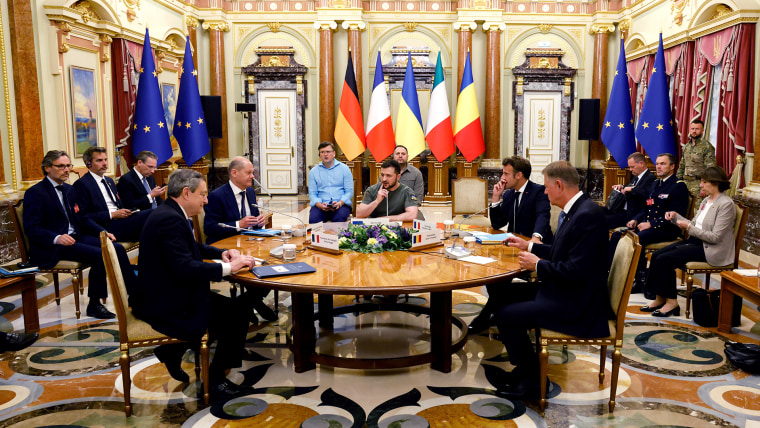

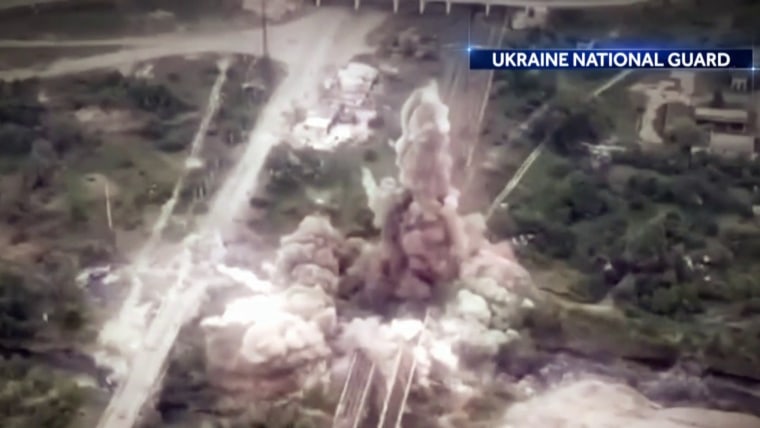

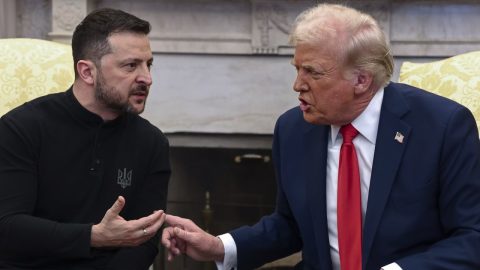




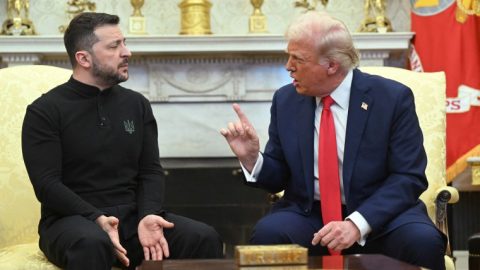
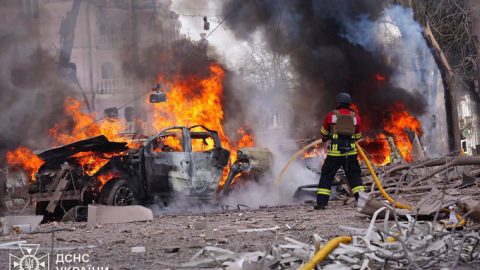
Recent Comments